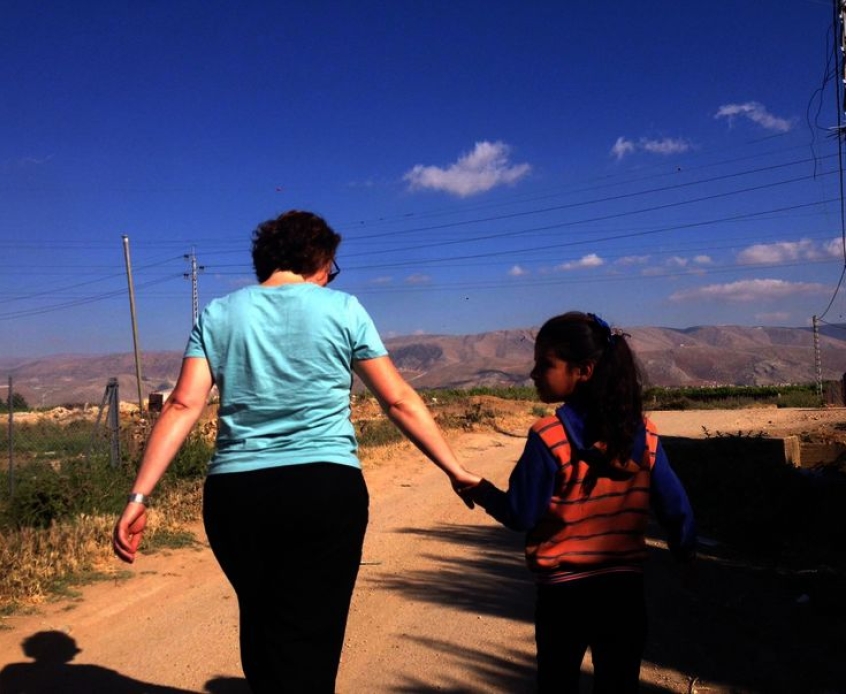For years, missionaries and mission agencies have been a part of church life in the UK. Missionary prayer meetings, tea and cakes with mission partners back on home leave and midweek visits from mission agency reps touting for support. These have all been part of the programme for many churches.
But things are changing and in future the world of missionaries and mission agencies will look very different.
We are living in the middle of a perfect storm, where three factors – any one of which would be a significant problem on its own – are combining to shake the mission world as we know it.

The first is the shift in the world Church. Modern mission agencies grew up in an age where the western world was broadly Christian but the rest of the world wasn't. Today, many of the countries that we used to call 'mission fields' have a higher concentration of believers than the UK or many other western countries. Mission agencies are finding themselves facing in the wrong direction.
The second factor is globalisation and its effect on the support for world mission in the UK. Churches are fully aware of the needs on their doorstep; they don't just have to reach secularised Brits, there are people from all around the globe – migrant workers, overseas students and refugees – literally on their doorsteps. It is hard to set aside resources to reach people on the other side of the globe, when there are so many challenges just around the corner.
The third problem is that churches increasingly don't see the need for mission agencies when it comes to overseas mission. Partly this is a pragmatic response: with travel and communication as easy as it is, many churches run their own mission trips, church partnerships or outreach projects in other countries, without the overheads of working through an agency. In other cases, the issue is a theological one; there are an increasing number of churches and church-streams who believe that mission is the work of the Church and that agencies are, for the most part, not needed.
Agencies are, of course, aware of these trends and they are responding to them in a variety of ways.
The first (and easiest) response is to tweak the way they are working to become more efficient. This means some management and back-office changes along with a sharper approach to publicity and promotion. Those organisations who have the resources have replaced the old-fashioned missionary magazines with glossy publications, well produced videos and tightly curated social media feeds. However while these sorts of tweaks are easy, they don't meet the enormity of the challenge that the agencies face.
More radical approaches involve agencies getting to grips with the changed dynamics of the Church. Some agencies are offering training and advisory services to churches. This can involve training church teams before they go off on a trip to Africa or providing coaching to church members as they reach out to the international community in their neighbourhoods.
Other agencies are going a step further and are placing workers in the UK. Missionaries who have worked overseas are now using their experience in the UK as they work with British churches to reach immigrant populations.
Even more radically, some agencies are specialising in 'reverse mission': in addition to sending British missionaries around the world, they are supporting missionaries from other countries to work in the UK.
In this new world, missionaries are no longer just exotic creatures in old-fashioned clothes who turn up in church every four years; they are also people from around the world, working in the UK.
But what of the mission agencies? They are trying to change, but it may be too little, too late. And there may be too many agencies to start with.
However, the role of agencies is not to serve their own needs, but to provide infrastructure and expertise to allow the Church – local churches and denominations – to carry out her mission. To do this, agencies must listen to the questions and concerns that churches are raising. The problem is that, all too often, church and agency leaders do not meet in the same place. Very few church leaders turn up at mission conferences and fewer agency leaders turn up at church and denominational meetings.
It is not just agencies that face this perfect storm; churches will be hit by it too and if we are to ride it out in the best way possible, we need to find new ways to talk to each other.
Eddie Arthur is director of strategic initiatives for Global Connections, a network of UK agencies, churches, colleges and support services that seeks to serve, equip and develop churches in their mission.













